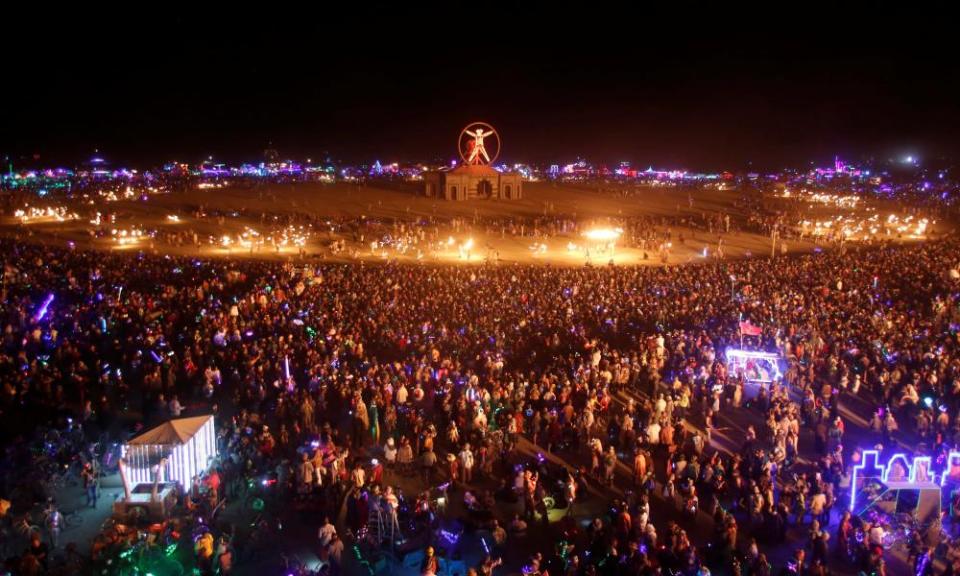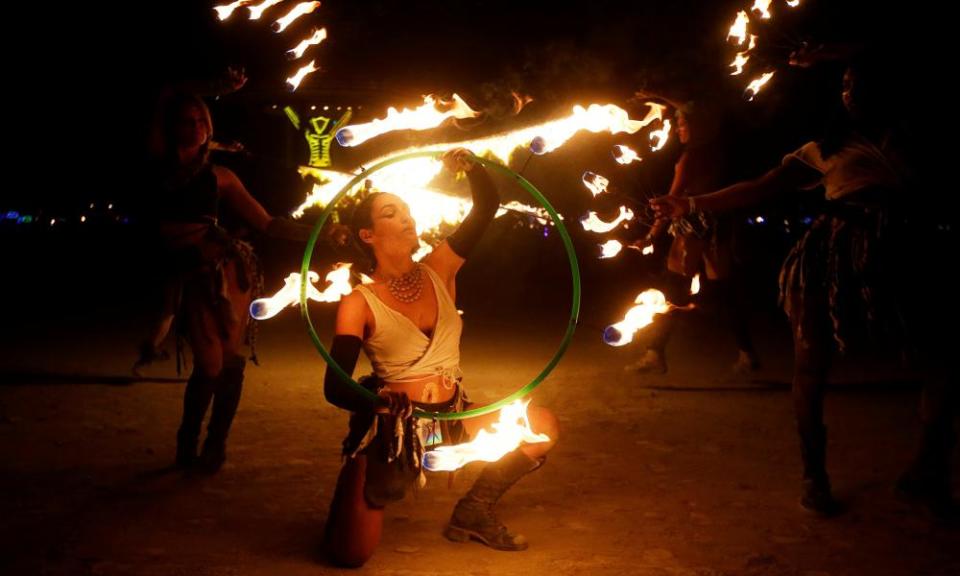Burning Man finally fights Instagram culture and bans high-end camp

Organizers behind the Burning Man festival – the annual counterculture celebration in Nevada’s Black Rock Desert – have finally acknowledged long-time “Burners’” complaint that the event has evolved too far from its roots.
In a lengthy blog post, CEO Marian Goodell called for a “cultural course correcting” – which includes giving the boot to some high-profile, and controversial camping groups.
Goodell outlined several “negative cultural trends” that she says go against the organization’s ethos, including commercialization on Instagram, themed camps, and commodification.

Showing the organization means business, it disinvited Camp Humano – a Fyre-festival style camp that, according to its website, promises high-end accommodation, a “culinary and beverage program which focuses on raw and cooked organic food”, “yoga retreats”, “meditation and energy healing sessions” and “artists and djs to align your heart pace with the beats of our sets”. Other camps may follow, Goodell warned.
“Burning Man strives to stand in technicolor contrast to the typical consumerist, status-driven, brand-saturated, optimized-for-your-convenience world. We create Black Rock City every year because we believe there is value in having an entirely different kind of experience – one grounded in what you have to contribute – to say, make, do, and share,” Goodell wrote.

She acknowledged the Playa in recent years has been flooded with groups like Camp Humana offering “turnkey camping”, models and Instagram influencers tagging brands in photos from the desert, and even companies timing product launches to coincide with the event. “This means they are using Black Rock City to increase their popularity; to appeal to customers and sell more ‘stuff,’ Goodell said.
Humano, she said, had been the subject of complaints for many year. The camp “had a poor ‘leave no trace’ record for three years and didn’t adequately comply with environmental regulations.
Goodell and Camp Humano did not immediately respond to The Guardian’s request for comment.

To further realign the event in the future, Goodell announced big changes to the ticketing system, aimed at making it easier for people from all backgrounds to make the trek to Black Rock city. Gone will be the “limited sale” $1,200 tickets that registrants could purchase into July and the number of Low Income Tickets will be increased by 18%.
Goodell ended on a positive note, urging participants to “preserve and protect the community ethos that sets Burning Man apart from mass-produced events”.
“We are counting on you to join us,” she concluded.

 Yahoo News
Yahoo News 